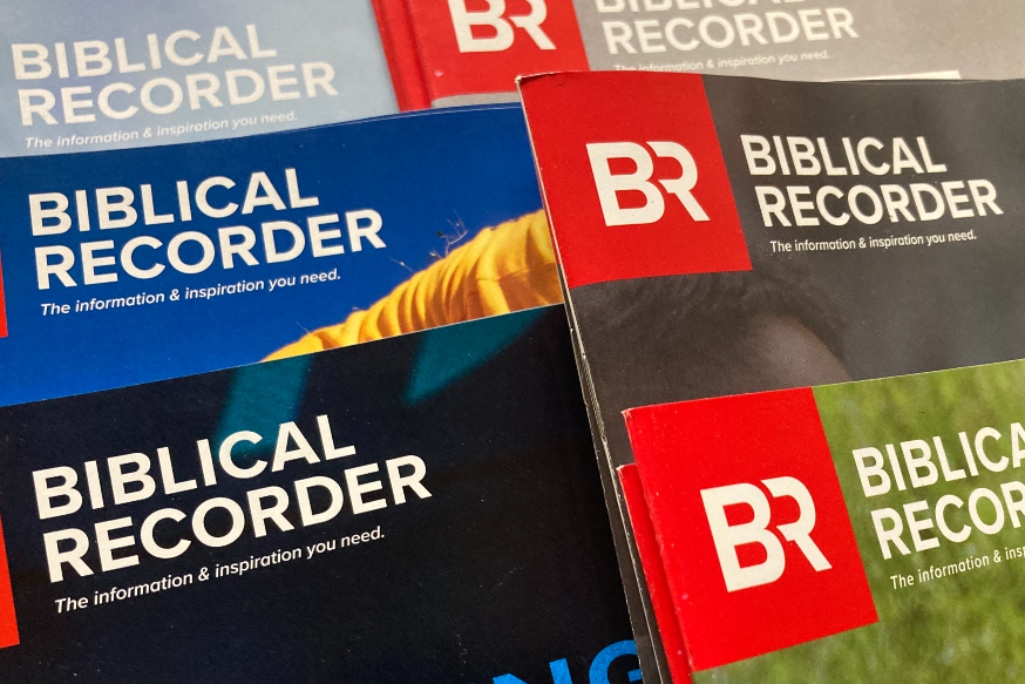An abundance of rich words can be used to describe the God of the Bible. One can draw on the beauty of words like holy, faithful, loving, merciful, patient and many more, including words that represent His extravagant grace.
God’s character defines radical generosity. The pages of scripture are saturated with examples. His generosity is both the foundation and the pattern for the giving habits of His followers.
When Moses received God’s instructions to build the tabernacle, he assembled the entire Hebrew community and called for an offering. The response of the people is an inspiring model for us.
Moses said, “Take up an offering among you for the Lord. Let everyone whose heart is willing bring this as the Lord’s offering: gold, silver, and bronze, …” (Exodus 35:5, HCSB). The offering was described as “free will” giving. The people who had a “willing heart” were invited to give. No legal or moral obligation was tied to the offering.
Their giving reflected the radical generosity they had experienced from God. “Everyone whose heart was moved and whose spirit prompted him came and brought an offering to the Lord for the work on the tent of meeting, for all its services, and for the holy garments. Both men and women came; all who had willing hearts …” (Exodus 35:21-22a).
The conclusion of this offering is the dream of every church. Moses had to tell them to stop giving. Imagine that! “After Moses gave an order, they sent a proclamation throughout the camp: ‘Let no man or woman make anything else as an offering for the sanctuary.’ So the people stopped. The materials were sufficient for them to do all the work. There was more than enough” (Exodus 36:6-7).
Give your attention to some key elements of this event. The people gave together. The people gave willingly. The people gave generously.
These giving patterns are very important ingredients for the New Testament church. Southern Baptists have experienced great effectiveness in missions and ministry at every level through shared giving.
Special mission offerings, the Cooperative Program and associational mission support have been successful because we have worked together, we have done so willingly, and we have given generously.
Giving has become the focus of Christmas. To be honest, some of that emphasis may come from our greed and materialism. But the story of the first Christmas includes the giving of gifts. The second chapter of Matthew’s Gospel tells about the Magi from the East who brought gifts to Jesus. This may be the launching point for our modern Christmas tradition.
One of the Magi gave the gift of gold. In his book, Stories Behind the Great Traditions of Christmas, Ace Collins reminds us, “To give gold to a baby would have been all but unheard of, unless, of course, that child was a king.” The extravagance of that gift was certainly appropriate.
But is it appropriate for us to give each other such gifts while we celebrate the birth of the Savior? Is Christmas a celebration of Jesus, or is it a celebration of us? I believe the answer is pretty obvious when we look at American giving patterns.
Christmas is the biggest commercial holiday of the year. Spending is the order of the day. I heard one retailer say that 70 percent of his annual sales happen in December.
I gathered these statistics from several sources:
-
This year $6.5 billion will be spent on Christmas cards.
-
This year $6 billion will be spent on Christmas decorations.
-
Americans will spend an average of $800 per person on Christmas presents.
-
Given the population of 314 million people in U.S., we will spend $251.2 billion on each other.
Is there a gift for the King of Kings?
Our gifts should express the reason for the coming of the babe in Bethlehem. Here is that reason in His own words: “For the Son of Man has come to seek and to save that which was lost” (Luke 19:10, NKJV). I should ask, “Does my gift define the reason for the Savior’s coming?”
What would be an appropriate gift of extravagance for the Savior? Let’s start with the amount we will give each other, approximately $800. There are 16 million Southern Baptists. Since we can’t find half of them, let’s just assume there are at least eight million of us.
If eight million Baptists gave $800 to the Lottie Moon Christmas Offering for International Missions (LMCO), our gifts would total $6.4 billion this year. That is 36 times greater than the 2013 goal of $175 million.
We can do that. Some can do more; others will give less. But we should try extravagant giving for His glory. It will change us. But more significantly, it will change the world.
I hope that every Southern Baptist would have a “willing heart” to hold hands with our international missionaries by giving generously to this offering. This is something we can do together – and I believe we should give together.
A church member once said, “Pastor, one of our members explained to me that they support individual missionaries. You don’t expect them to give to the Lottie Moon offering do you?” I said, “I certainly do. None of us is forced to give, but there are some things that are of such magnitude that we should do them together. This is one of them.”
Gifts to LMCO are not going to a bureaucracy. Every dime is directly supporting more than 4,800 missionaries and their children who have chosen sacrificial living for God’s glory.
If we gave with radical generosity, there would be more than enough. Wouldn’t it be great if Tom Elliff, International Mission Board president, had to send out an urgent plea to ask churches to stop giving because we have more than enough to support all of our existing missionaries and a thousand more?
We’re not there yet. So, I am praying that God will begin with me and develop willing hearts across the fellowship of Southern Baptist churches.


